I just discovered the fall planter hack Joanna Gaines swears by, and I can't wait to try it
Take three plant styles for a stunning display

Here at Tom’s Guide our expert editors are committed to bringing you the best news, reviews and guides to help you stay informed and ahead of the curve!
You are now subscribed
Your newsletter sign-up was successful
Want to add more newsletters?

Daily (Mon-Sun)
Tom's Guide Daily
Sign up to get the latest updates on all of your favorite content! From cutting-edge tech news and the hottest streaming buzz to unbeatable deals on the best products and in-depth reviews, we’ve got you covered.

Weekly on Thursday
Tom's AI Guide
Be AI savvy with your weekly newsletter summing up all the biggest AI news you need to know. Plus, analysis from our AI editor and tips on how to use the latest AI tools!

Weekly on Friday
Tom's iGuide
Unlock the vast world of Apple news straight to your inbox. With coverage on everything from exciting product launches to essential software updates, this is your go-to source for the latest updates on all the best Apple content.

Weekly on Monday
Tom's Streaming Guide
Our weekly newsletter is expertly crafted to immerse you in the world of streaming. Stay updated on the latest releases and our top recommendations across your favorite streaming platforms.
Join the club
Get full access to premium articles, exclusive features and a growing list of member rewards.
Now is the perfect time to put on your best garden gloves and start planting. Although the summer sun has disappeared, there’s no reason why you can’t continue to add color to your yard.
What’s more, Joanna Gaines, interior decorator and presenter of Fixer Upper on HGTV, has shared her approach to seasonal planters within the fall issue of The Magnolia Journal, the lifestyle publication she leads.
Her planting method is all about “thrillers, fillers, and spillers”. And it’s all based on a fail-safe method that professional gardeners have been following on repeat — with a unique touch from Gaines, who likes to place her planters on her front porch, near her garden shed and outside her chicken coop.
I’m excited to try the container planting method she shares, since I’m getting ready to replant my own containers for a fall display.
Thrill, fill, and spill
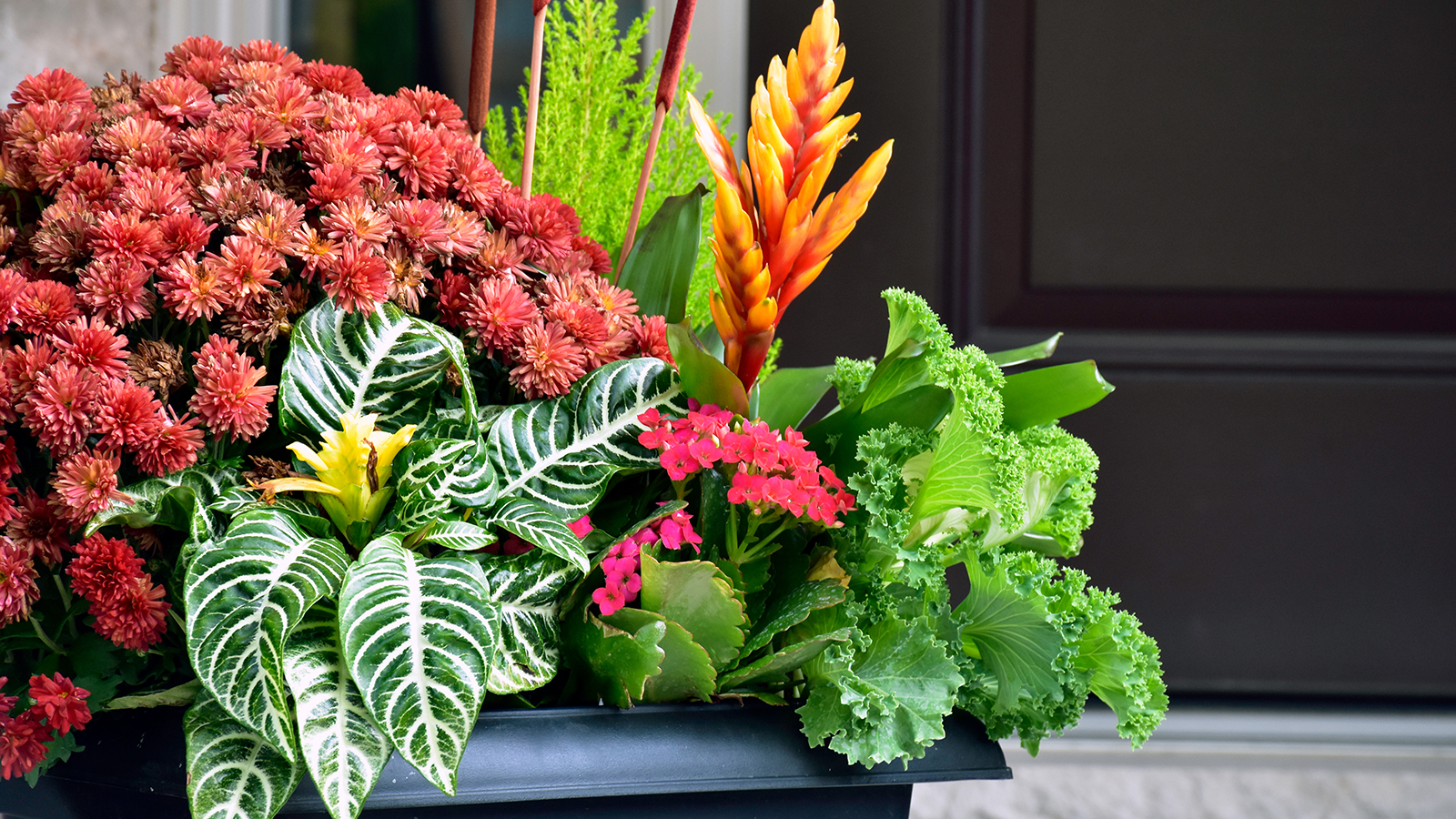
The concept is based on three plant types: thrillers, fillers and spillers. It’s a simple formula that’s easy to remember — especially once you’re at your local plant nursery looking for beauties to fill your containers.
Gaines describes this classic formula of plants as “upright focal points”, those providing a “lush understory”, and plants “to trail off the pot.”
According to Dobbies Garden Centre the method involves “choosing three plants that have different heights and planting them in one planter to add color, depth and texture to your garden.”
Get instant access to breaking news, the hottest reviews, great deals and helpful tips.
Even if it’s your first time, the technique is easy to follow and can result in a stunning display.
So to achieve the thriller, filler and spiller effect, choose plants that vary in height, texture and color for a beautiful arrangement.
Thrillers
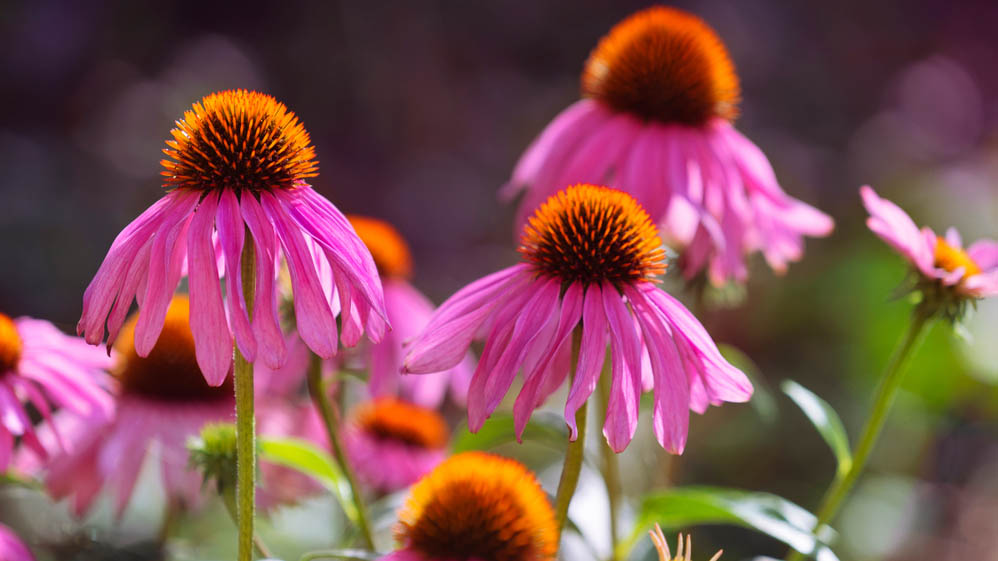
Thrillers are impressive plants that will turn heads. Think tall vertical plants that serve as the central focus of your display and add architectural interest. They can be colorful, have intriguing foliage, or dramatic blooms, and don’t rule out grasses.
Fillers
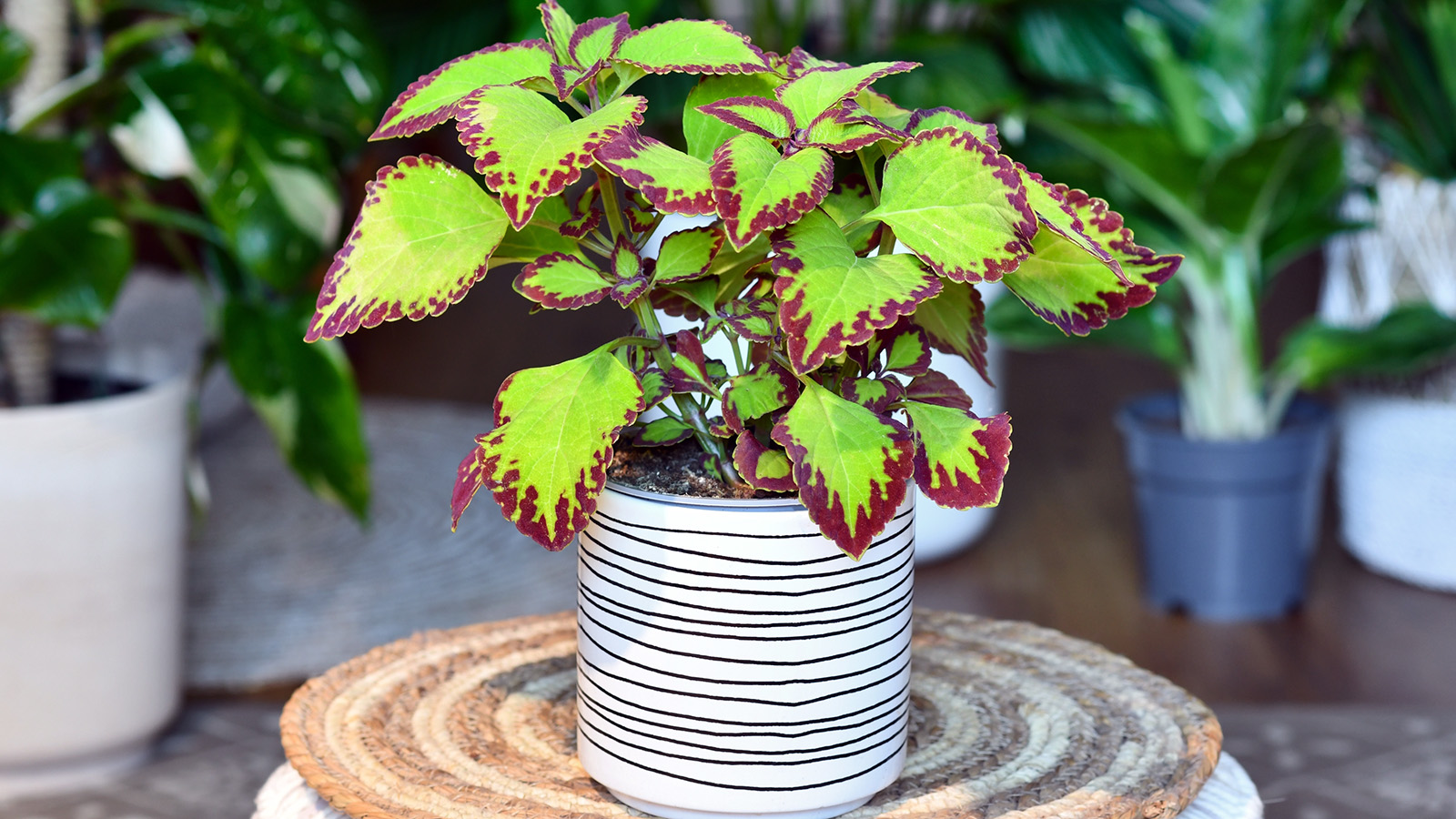
Fillers are mid-height plants that add bulk to your display. They often contrast with the texture and color of your thriller plant, and typically take on a more rounded form. Plants with variegated leaves or unique foliage can add extra texture and interest.
Spillers
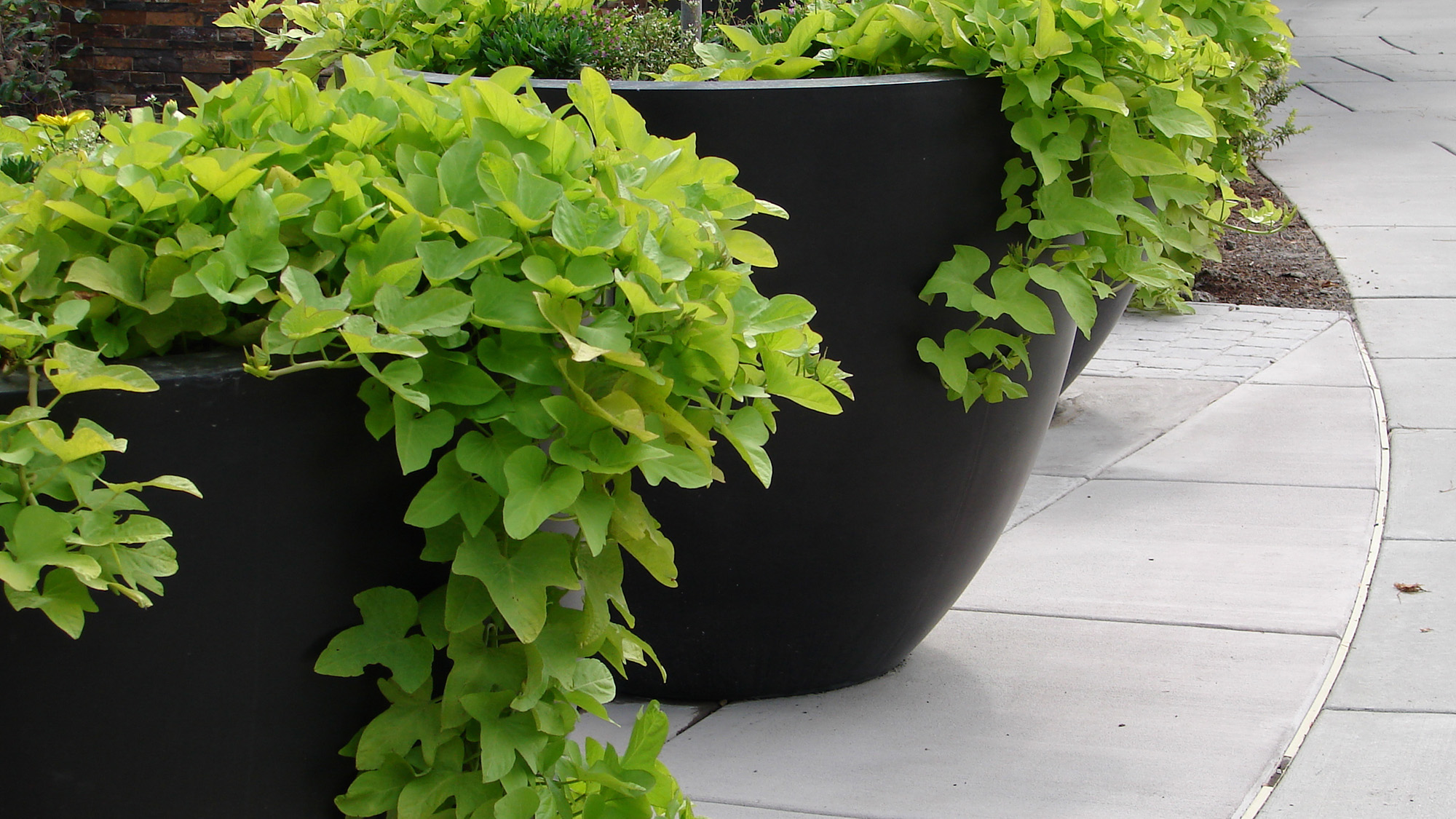
Spillers are low growers that will cascade down over the side of your planter. Plant them near the edges to soften the look and to help blend with the planter.
These garden gloves are made of nylon and nitrile and come in three sizes — small, medium and large. They offer excellent non-slip properties, are comfortable around the wrist, breathable and machine washable. At Tom's Guide, we recommend them as the best overall gardening glove.
Plan your planting
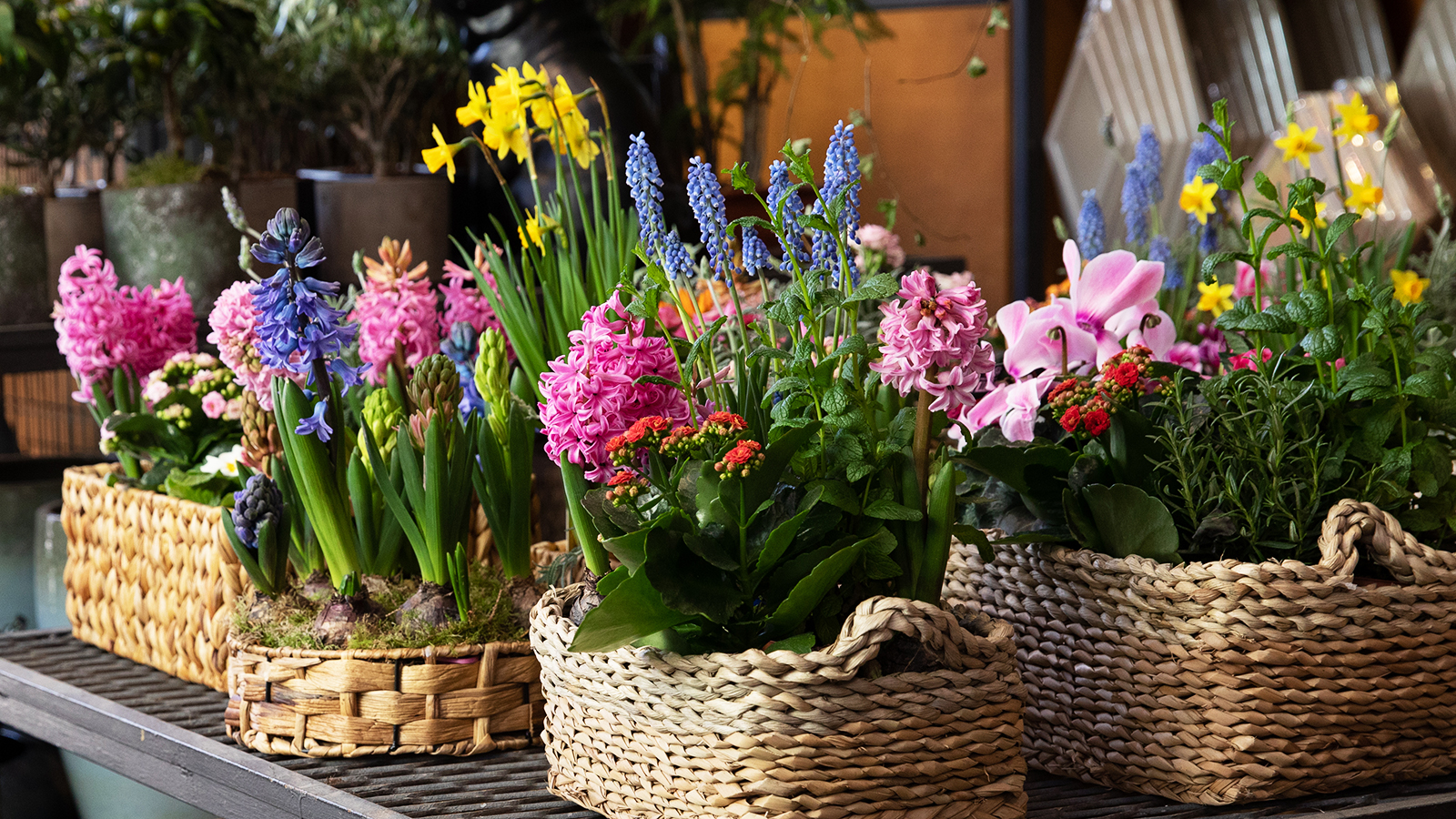
Before heading to the plant nursery, Gaines suggests creating a mood board of plant combinations and color palettes. “I’ll choose one or more color to highlight in each planter so the grouping feels cohesive,” she says.
For fall colors, she chose deep purples and greens, citing examples like the weeping redbud tree, loropetalum, Swedish ivy, potato vine, ‘Brilliance’ autumn fern, coralbells, and maidenhair fern.
Some of Gaines’ favorite thriller plants include loropetalum, Eustacia, and coneflowers. Coleus works beautifully as a filler, while potato vine is a great choice for a spiller.
Don’t be shy
When planting your containers, if you’re going for a lush look, Gaines recommends planting two or three of each variety per planter and says, “Don’t be afraid to cram them in.”
A full planter will look far more impactful than one that's sparsely planted. Once the plants become established and have filled out, you can always remove one or two if needed.
The secret is to enjoy selecting your different plant combinations and learning what does and doesn’t work, so you can make adjustments next season.
Follow Tom's Guide on Google News and add us as a preferred source to get our up-to-date news, analysis, and reviews in your feeds. Make sure to click the Follow button!
More from Tom's Guide
- Don't skip these garden tasks in October — 9 essential steps to set you up for spring
- 6 best bulbs to plant in October for beautiful spring blooms — and how to do it
- I learned this plant hack from a neighbor — here's how to protect your container pots this winter

Camilla is the Homes Staff Writer and covers everything to do with homes and gardens. She has a wealth of editorial experience, mounting over 30 years, and covers news and features, tests products for reviews and compiles buying guides.
Her work has appeared in business and consumer titles, including Ideal Home, Real Homes, House Beautiful, Homebuilding & Renovation, and Kitchen & Bathroom Business. She’s even appeared on the cover of Your Home, writing about her own house renovation.
Although she’s obsessed with decorating her home, she also enjoys baking and trying out the latest kitchen appliances. But when she’s not inside, you’ll find her pottering about in her yard, tending to her vegetable patch or taking in her prized hydrangeas.
You must confirm your public display name before commenting
Please logout and then login again, you will then be prompted to enter your display name.
 Club Benefits
Club Benefits











